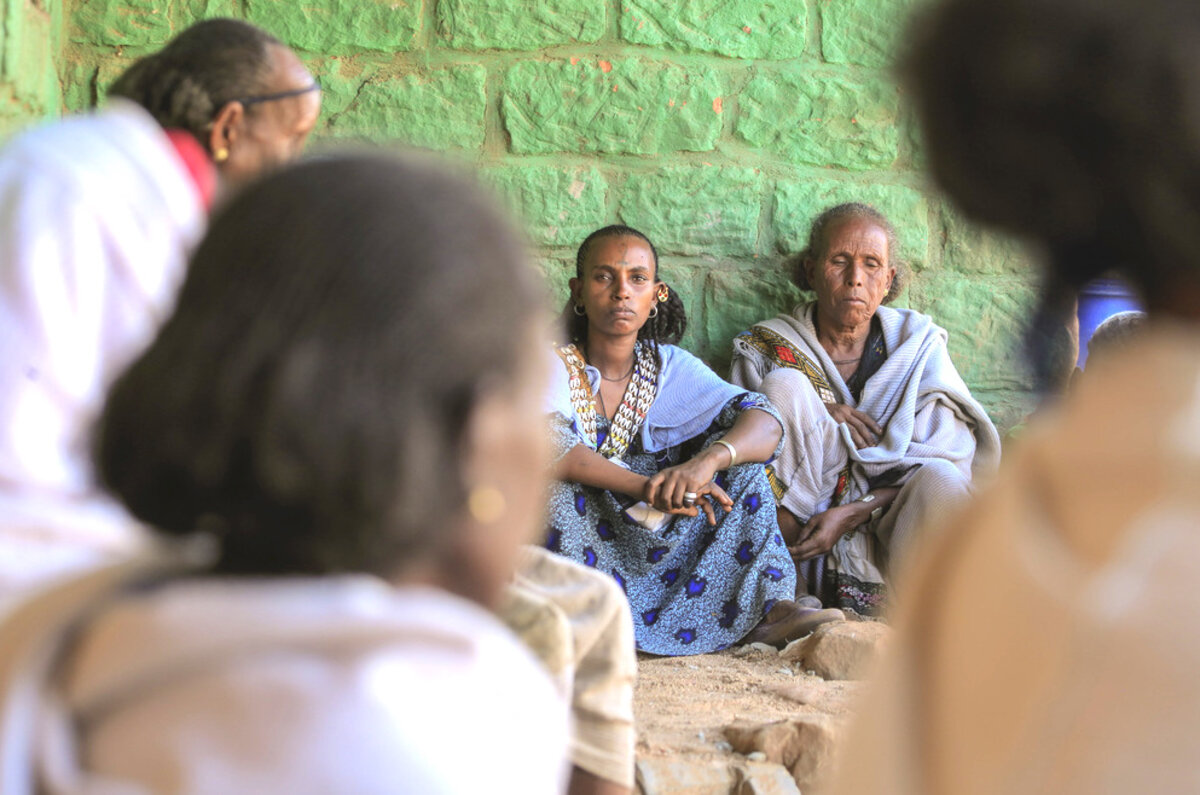In the mountainous regions of northern Ethiopia, a people divided by a horrific war that ended just two years ago are about to find out what they share. If they succeed, it could shape a new approach to what is called transitional justice for postconflict societies.
As part of a peace deal between the central government in Addis Ababa and rebellious militia in the state of Tigray, both sides have committed to reconciliation. Skeptics of the process abound, but as one local teacher told University of Gonder researchers, forgiveness and reconciliation can end “misunderstandings and disobedience to promote harmony in daily life, ... creating a united society.”
The conflict, one of the deadliest since the end of the Cold War, killed more than 500,000 soldiers and 360,000 civilians. During two years of fighting, the government sealed the Tigray enclave from humanitarian aid. More than 80% of the population of 5.5 million people was put at risk of deliberate starvation. Rape was weaponized.
In April, the government approved establishing a special prosecutor and court as well as a truth commission with the power to grant amnesty for admissions of guilt and remorse. Since then, however, international agencies and civil rights organizations have accused Addis Ababa of dragging its heels.
Yet throughout the country, even in places where ethnic skirmishes continue, communities are beginning the work of building peace on their own. Local initiatives are turning victims into healers. A key target of their work is overcoming traditional social taboos and gender-based inequality through empathy and listening.
In Bora, a valley in Tigray terraced by farms, women who lived through the 1994 genocide in Rwanda are training local women to set up groups to salve the wounds of sexual violence and promote economic independence through small female-owned businesses.
“In our culture, women are considered as less,” Elizabeth Kidane, a Tigrayan medical student who is helping survivors, told Al Jazeera last month. She said that attitudes are changing through “community-based healing sessions, creating awareness on mental health ... [and working] with service providers, teachers and religious leaders.”
The mood Ethiopians share for peace and reconciliation may be most apparent in their desire for forgiveness. In late September, thousands gathered in cities across the country to celebrate the Orthodox Christian festival of Meskel. Its importance, Berhanu Admass, a church deacon in Addis Ababa, told The Associated Press, is “to have us embrace forgiveness and pray for our peaceful co-existence.”
The University of Gonder study of forgiveness rituals published last month offered a granular look at how Ethiopians resolve family, ethnic, and religious conflict locally through dialogue. It found that “encouraging the character virtue of forgiveness is crucial for effective and sustainable peacebuilding.”
Since the end of World War II, according to the website Justice Data, 76% of countries have established some form of justice prior to fully ending hostilities. Sometimes, as Ethiopia is showing, that work starts with ordinary people seeing peace as greater than social differences.





